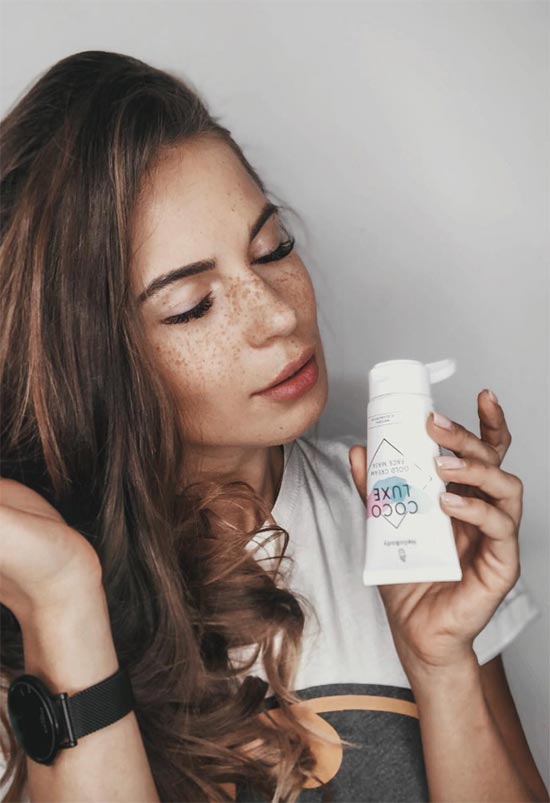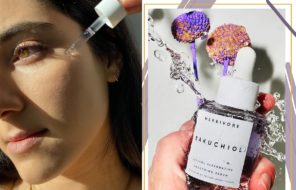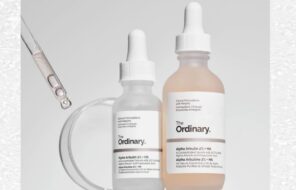Coconut oil uses are many and diverse – so much so that it’s become one of the funniest memes on the Internet. As much as we love all of the jokes, it’s time to clear things up: will coconut oil really clear your skin? Will it file your taxes? Will it change your baby’s diaper?
Okay, so maybe it won’t do those last two things, but when it comes to coconut oil for skin, it really can be magical. That doesn’t mean coconut oil is for everyone, however, so you’ll have to keep reading to see if coconut oil is for you, and if so, in what way.
In this article, I also explain exactly what coconut oil is, and whether it’s good for the skin in the first place. I explain the various benefits of coconut oil for skin as well as its drawbacks, and I’ll let you know exactly which type of coconut oil is best.
I go over how coconut oil works for each skin type, which skin types it is best for, and how to do a patch test with coconut oil to make sure it’s right for your skin. To finish things off, I explain the various coconut oil uses in skin care, and I make sure to explain when you can use pure coconut oil at home or in DIY recipes, and when it is better to buy a dedicated coconut oil skincare product.
In this article:
- What Is Coconut Oil?
- Is Coconut Oil Good for Your Skin?
- Benefits of Coconut Oil on Skin
- Which Type of Coconut Oil Is Best?
- Which Skin Types Is Coconut Oil Good for?
- Possible Coconut Oil Side Effects for Skin
- How to Patch Test Coconut Oil
- Coconut Oil Uses in Skin Care
What Is Coconut Oil?
Coconut oil is the oil produced from the meat of the coconut fruit. It is an edible oil that is solid at room temperature, with a sweet, nutty taste that is reminiscent of the coconut flesh itself.
This oil has very high amounts of saturated fat, because of which it is extremely long-lasting and very resistant to oxidation. This is why coconut oil doesn’t go rancid as quickly as any of the other botanical oils that show up in cosmetics.
Despite what many sources say, coconut oil is actually not particularly healthy to eat. While this oil does contain some beneficial components, its main fatty acid, lauric acid, is known for raising blood cholesterol levels. Regular consumption of coconut oil could raise the risk of cardiovascular disease, and because of that many bodies recommend against consuming it, including the FDA, WHO, and American Heart Association.
Is Coconut Oil Good for Your Skin?
For those for whom coconut oil works, it is excellent for the skin, but unfortunately coconut oil doesn’t work for everyone. Like many other botanical oils (as well as many other skincare ingredients), coconut oil has the potential for causing breakouts in the skin. Not all those who are acne-prone will break out from coconut oil, since acne triggers tend to vary widely from person to person, but the risk does exist.
Coconut oil has a “4” comedogenicity rating, although we’re not big believers in this scale. The comedogenicity ratings you often see on the Internet arrived after different ingredients were tested on rabbit ears. We’re not at all convinced that the ratings are applicable to humans.

The only way to truly find out is by conducting patch tests for acne, although even if someone is sensitive to coconut oil when applied to their skin at a high dose, a small amount in a robust cosmetic formula is significantly less likely to cause breakouts.
All of the lauric acid (a saturated fatty acid) that makes coconut oil so unhealthy to consume is actually fantastic for the skin. When applied to the skin, lauric acid has skin-soothing properties, so it is able to calm down redness and irritation. There is also preliminary research showing that it has antimicrobial properties that should help those suffering from acne.
Beyond that, coconut oil has skin-moisturizing properties. It acts as a light occlusive, preventing moisture from evaporating from the skin, and it strengthens the skin’s barrier capabilities by acting as an emollient and filling in the gaps between dead skin cells. This softens the skin and strengthens it by making it suppler.
When coconut oil is mixed into a moisturizer or eye cream that also contains water, humectants, and emulsifiers, it can really boost to the overall formula and moisturize the skin.
Like many other oils, coconut oil is also great for cleansing the skin. It can break down makeup, sunscreen, and facial oils, so it can be used for the oil cleansing method, as a makeup remover, or as the first step of a double cleanse.
Benefits of Coconut Oil on Skin
Coconut oil for skin is used for multiple reasons, and these are all the benefits it brings for your skin!
Emollient
Coconut oil is a phenomenal emollient. An emollient is a skincare ingredient that softens the stratum corneum, which is the very top layer of the skin that is mostly comprised of dead skin cells and acts as a protective barrier.
The emollient coconut oil finds its way in between the dead skin cells, making the top layer softer, stronger and suppler. This is especially useful for those who have flakey, dry or delicate skin.
Occlusive
Coconut oil for skin also acts as an occlusive to seal the skin. By sealing the skin, coconut oil prevents bad things from getting into the skin and prevents goods things from getting out of the skin.
This is especially important when we talk about water – coconut oil as a final step of skin care or as part of a comprehensive moisturizer can prevent moisture from evaporating from the skin, which is very important for dry or dehydrated skin.
However, if you use coconut oil too early in the skincare routine, or if you use it without any serums or moisturizers, then it can actually prevent water from getting in.
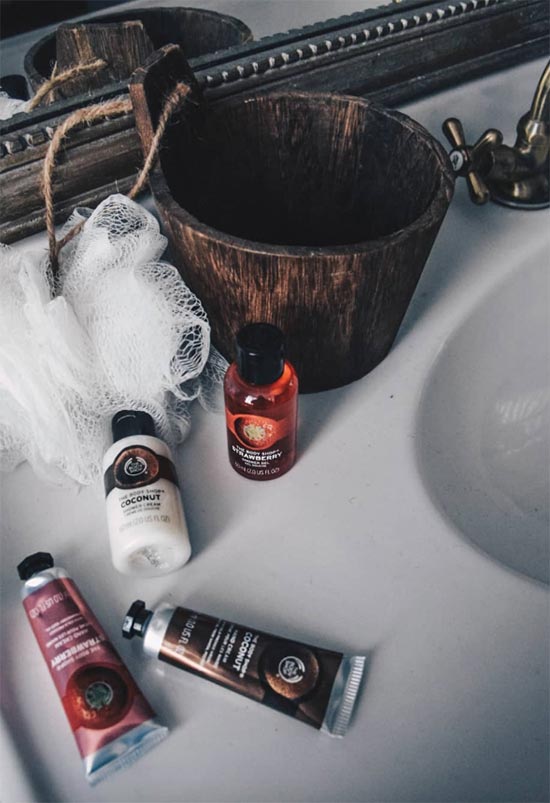
Soothing
Coconut oil for skin is very high in lauric acid, a type of saturated fatty acid that has anti-inflammatory properties. Tests have only been conducted on the effect of lauric acid on acne-related inflammation, but that’s not to say that it won’t also help with inflammation due to other causes.
Applying coconut oil to your skin when it’s red or irritated is almost guaranteed to help, and it can also help prevent irritation to the skin when used regularly, especially by those with sensitive skin. This being said, coconut oil is not comparable to anti-inflammatory medications.
Antioxidant
Antioxidants are ingredients that prevent the oxidative damage caused by free radicals. This free radical damage usually comes from sun exposure or pollution, and it leads to quicker development of fine lines, wrinkles, and hyperpigmentation. This kind of damage is usually referred to as premature aging or extrinsic aging.
Unrefined, virgin coconut oil contains all kinds of antioxidants, particularly various phenolic compounds including ferulic acid and p-coumaric acid. There are many oils out there that are richer in antioxidants, but none of them has the same texture and stability as coconut oil.
If your primary concern is preventing or reversing the various signs of aging, then coconut oil skin care can certainly help, although it won’t replace dedicated anti-aging skincare products. In general, it is best to rely on many different antioxidant sources in one’s skincare routine, so using various kinds of oils along with other antioxidant sources is the best way to go.
Potentially Anti-Bacterial
There have been various studies that researched the antibacterial properties of lauric acid, the main fatty acid in coconut oil. Both in vitro and in vivo studies showed that lauric acid is effective in inhibiting the acne bacteria. However, these studies weren’t conducted on humans so we cannot conclusively say that lauric acid will help humans.
It is possible that coconut oil would actually exacerbate acne if it ends up being comedogenic to the person who uses it. This is why patch testing with coconut oil is so important – you may find that it totally clears up your skin, or you might find that it does the exact opposite.
Which Type of Coconut Oil Is Best?
Coconut oil can be extracted in a few different ways, with some better than others. The very best coconut oil for skin would be cold-pressed and unrefined (which is just another word for virgin or extra virgin).

This is coconut oil that has undergone less processing, and is therefore significantly richer in antioxidants – those magical anti-aging components that keep the skin protected against the destructive onslaught of sun and pollution damage. This is the best kind of coconut oil for skin to buy if you want to use it on its own or if you want to make very simple DIY skincare products.
However, formulating coconut oil skin care beyond a simple balm usually requires refined coconut oil. Refined refers to coconut oil that has gone through an extra refining process, to remove some of the “impurities” that also happen to give coconut oil its unique flavor and scent.
Refined coconut oil still has the wonderful saturated fats that are so great for the skin, but it is lower in antioxidant polyphenols. Some refinement processes change the fatty acid composition of coconut oil, especially if they include chemical solvents. However, when coconut oil is refined through a steam or centrifuge process it will keep its beneficial fatty acid profile.
Which Skin Types Is Coconut Oil Good for?
- Coconut oil is great for anyone whose skin doesn’t break out from it. This doesn’t mean that it’s not appropriate for acne-prone skin. In fact, some people with acne find that the lauric acid in coconut oil is great for reducing redness from pimples and preventing their breakouts. If your skin is acne-prone, you can patch test coconut oil to see if it’s right for you.
- Those with sensitive skin will also greatly benefit from coconut oil skin care, as its anti-inflammatory properties can help calm down and prevent redness, swelling, and irritation. Additionally, since coconut oil is so emollient, it will help to strengthen the skin and prevent other irritants from getting into it. Coconut oil acts as a wonderful makeup remover for those with sensitive skin, since it is unlikely to irritate it.
- For those with dry skin, coconut oil can be great, but not as a sole moisturizer. Coconut oil helps dry skin by preventing moisture evaporation and by softening and strengthening the top layer of skin. Moisturizers with coconut oil are usually excellent for dry skin types, since in addition to the oil they also contain humectants that will saturate the skin with water. If you have dry skin, and you want to use pure coconut oil, save it for after you’ve already used a hydrating serum or essence, or use it as a final occlusive layer after you’ve already moisturized. You can also use coconut oil as a gentle, non-drying makeup remover.
- Those with oily or combination skin might want to avoid using pure coconut oil all over their face. Since it is a greasier oil, it might leave your skin looking too shiny, especially in the daytime. It is still possible to use pure coconut oil as a makeup remover, or as an extra layer of protection only for drier areas of the face like around the eyes. Additionally, there are many coconut oil skincare products that are not greasy at all and are perfect for those with oily or combination skin types!

Possible Coconut Oil Side Effects for Skin
While coconut oil for skin is great, it’s not without its drawbacks. Please note that these are drawbacks and side-effects that only apply to topical applications of coconut oil. There might be possible risks to coconut oil ingestion, but you’ll have to find them elsewhere.
Breakouts
The most common side effect of coconut oil for skin, which I’ve already talked about at length, is acne. Coconut oil is very comedogenic for some, so it is important to conduct a patch test before using it to ensure that it does not clog your pores and cause pimples.
Pure coconut oil is more likely to cause breakouts than products that contain a small percentage of coconut oil as part of a comprehensive formula.
Oiliness and Stickiness
This is not quite a side effect so much, as it is just a feature of the ingredient. Pure coconut oil is a thick oil so it takes a bit of time to sink into the skin. It can leave a greasy film, which could make the face look overly oil, and can also feel quite sticky. For most coconut oil addicts, this is not an issue, but if this doesn’t sound great, then you can use coconut oil skincare products instead.
Ruins Clothes
As a symptom of coconut oil’s greasiness, coconut oil can also really cause havoc to clothing, especially if you like to use it as an all-over body moisturizer after a shower. Make sure to use coconut oil sparingly, and to let it sink in completely before putting on any clothing items that you care about.
Allergy and Irritation
Though extremely rare, it is possible to be allergic to coconut oil, the same way it is possible to be allergic to any natural ingredient. Additionally, the more bioactive virgin or unrefined coconut oils are also somewhat likelier to trigger a reaction. It is possible to be sensitive to unrefined coconut oil and totally fine with the refined version or with coconut oil skincare products.
Most of us know what natural ingredients we’re allergic to by the time we reach adulthood, but if you’re unsure, conduct a patch test before using coconut oil on your skin. If you experience itching, pain, redness, or swelling, then coconut oil is not for you.
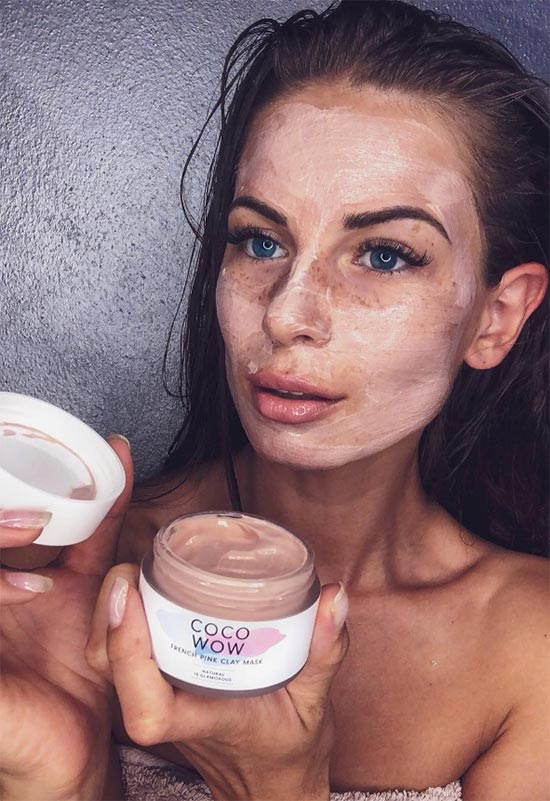
Aggravates Fungal Skin Conditions
Dandruff, malassezia (fungal acne), and seborrheic dermatitis, just to name a few, are skin conditions caused by fungus rather than bacteria. The fungus that causes these issues thrives when it has tasty saturated fatty acids to eat, so unfortunately coconut oil (along with most other botanical oils) is not appropriate for those suffering from fungal infections.
How to Patch Test Coconut Oil
With an ingredient like coconut oil, which is so polarizing in its effect, it is very important to conduct a patch test. A patch test is a method of trying a new product or ingredient to see how the skin will react, without setting off a full-face reaction.
The truth is this is very important whenever you introduce a new skincare product into your routine, especially with stronger actives that may cause irritation, but for coconut oil for skin, I will focus on patch testing for acne.
To patch test, apply the coconut oil to your skin only at the area where you normally break out. You want the space where you patch test to be large enough that you will definitely see if a reaction occurs, but not so large that it’ll be an issue if you end up breaking out.
Conduct the patch test every day for two or three days, and if a breakout never occurs, then it’s a sign that coconut oil is right for you!
Coconut Oil Uses in Skin Care
There is a bunch of coconut oil uses in the skincare world. You can make use of a jar of unrefined coconut oil at home in a variety of ways, but in other cases you might want a coconut oil skincare product that was crafted by a team of skilled chemists instead.
I’ll go over all of the coconut oil uses, letting you know which can work for DIY and which is better purchased from the cosmetics store.
Coconut Oil as a Makeup Remover
Coconut oil is perfect for breaking down heavy makeup or persistent sunscreens, and as an added bonus it is extremely gentle on the skin. You can use it as a makeup remover by rubbing it straight onto your face, and then wiping off with a cotton pad or face cloth. You will have to cleanser your skin afterwards to remove the coconut oil residue.
Coconut Oil as a Cleanser
The same properties that make coconut oil a great makeup remover also make it a great cleanser ingredient. However, in order to be a good cleansing ingredient, coconut oil has to be mixed with emulsifiers and preservatives to ensure that it will be easy to remove from the skin.
This is not something that is easily done at home, so it is better to purchase an oil cleanser that contains coconut oil, like some of the ones I’ve listed earlier in the article.
Coconut Oil as Moisturizer and Eye Cream
Coconut oil’s amazing emollient and occlusive properties make it a wonderful addition to moisturizer and eye cream formulas. On its own coconut oil lacks the ability to hydrate the skin, but when mixed with water and humectants that can do that, coconut oil is great for locking in that moisture.
Coconut Oil as an Overnight Treatment
Pure coconut oil for skin is great as a post-moisturizer sealant or occlusive. Since it prevents moisture evaporation from the skin, you can apply it at night as a bonus treatment, after all of your essences, serums, and moisturizers. The coconut oil will act as a wonderful final layer that will prevent all that goodness from escaping from your skin.
Coconut Oil as Moisturizer Booster
On days that your skin is feeling extra dry, you can use coconut oil as a booster to your moisturizer. In your palm, mix a bit of coconut oil with your go-to moisturizer, and then apply it to your skin. This will make your moisturizer a little heavier and creamier, which can be especially nice in the wintertime.
Coconut Oil as Body Scrub
You can make your very own moisturizing in-shower body scrub with the help of coconut oil. Right before hopping in the shower, mix coconut oil with your favorite abrasive in a small container.
My favorite ingredient to mix for this is sugar, since it has some skin-hydrating properties and it also melts away very easily in warm water, so clean-up is easy. Other potential abrasives you could use include salt, used coffee grounds, ground oatmeal, and more.
Use this scrub after you’ve already been in the shower for a few minutes, so that your skin is already saturated with water, which the coconut oil can then seal in. Rub the scrub into your skin, and it will remove the dead skin cell build-up, leaving your skin smooth, soft and moisturized.
Keep in mind that since this is a DIY recipe that does not include preservatives, it is better to mix it up fresh before every shower, since we cannot guarantee that a larger quantity will not spoil or grow harmful bacteria after a day or two.
Photos via @evil9225, Instagram

